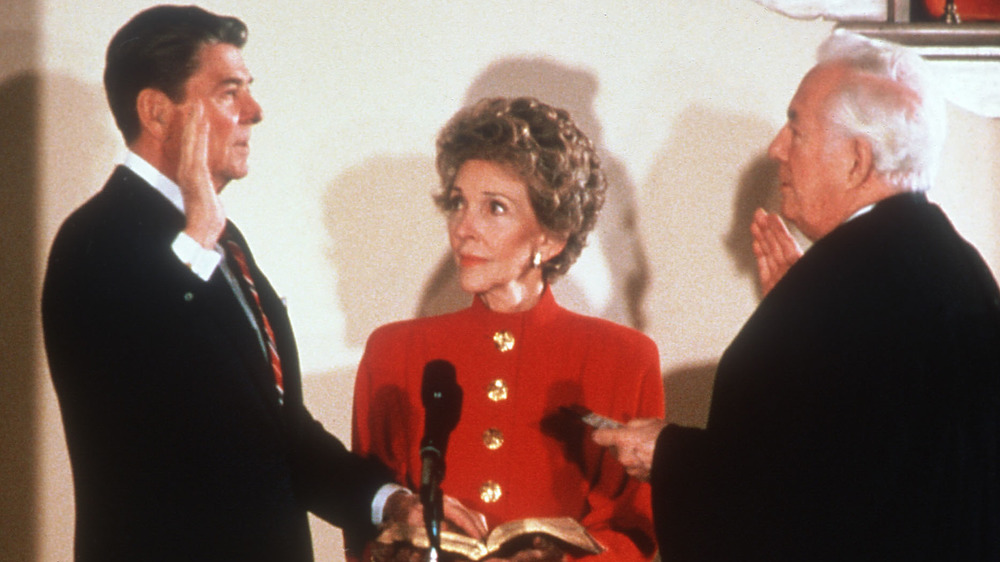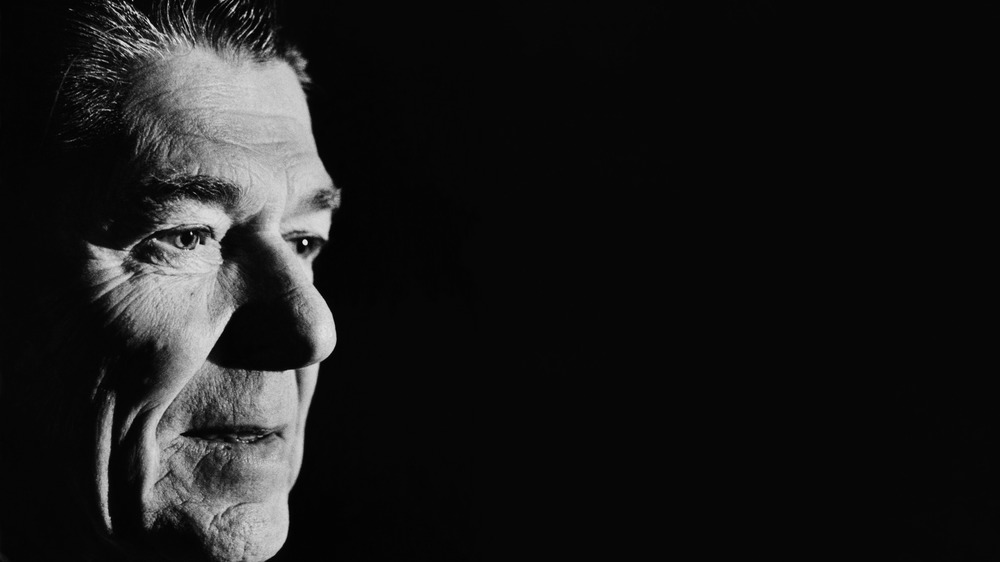The Real Reason Ronald Reagan's Second Inauguration Was Held Indoors
Nothing felt right about Inauguration Day in 1985. The president had to be sworn in twice. There was no crowd bearing witness to the Presidential Oath of Office. And the parade even got canceled. Some of the extraordinary circumstances were due to the way the calendar fell that year, and some of them were out of concern about safety.
Because the beginning of the second term of President Ronald Reagan and Vice President George H.W. Bush landed on a Sunday, the two were officially sworn in at the foot of the Grand Staircase in the North Entrance Hall of the White House in a brief and private ceremony (although it was televised). It had happened once before, in 1957, when Chief Justice Earl Warren swore in President Dwight Eisenhower during a private ceremony in the East Room of the White House and again the following day on the East Portico of the U.S. Capitol.
Just hours after being sworn in at the White House, Reagan and inauguration officials took the step of canceling the public events for the next day, according to the Chicago Tribune. Instead of the customary open-air ceremony on the West Front of the U.S. Capitol with thousands of invitees in attendance to witness the transfer (or continuation, in this case) of power and the official start of a new presidential term, Reagan was sworn in during a smaller ceremony in the Capitol Rotunda.
An Arctic weather front moved in on Washington and the Mid-Atlantic region.
Subzero temperatures forced Ronald Reagan's second inauguration indoors
That front forced organizers to cancel not only the swearing in ceremony, but also the parade. Temperatures were in the single digits, and subzero with the windchill effect. In a statement, Reagan said medical experts recommended the cancellation because the frigid temperature and heavy wind would "cause significant risks to the well-being of many of the thousands who would attend and work at these events," The New York Times reported at the time. And, on Inauguration Day, Reagan was 73 years and 349 days of age.
As The New York Times reported, James Lake, an inauguration committee spokesman, said canceling the day's events was a "costly decision, but in view of the health considerations, there was no alternative," adding, "I would like to cry."
Although the events surrounding the inauguration were altered — including canceling the parade — Reagan delivered his address, the 50th of its kind by an American president. It struck an uplifting, aspirational tone that reinforced messages of American unity — hallmarks of Reagan's philosophy on communication and his presidency as a whole.
In his address (posted at Yale Law School), Reagan said, "We must do what we know is right and do it with all our might. Let history say of us, 'These were golden years — when the American Revolution was reborn, when freedom gained new life, when America reached for her best.'"
However, Reagan did have one wish for his second term, the LA Times reported: "Well, I hope it will be warmer."

